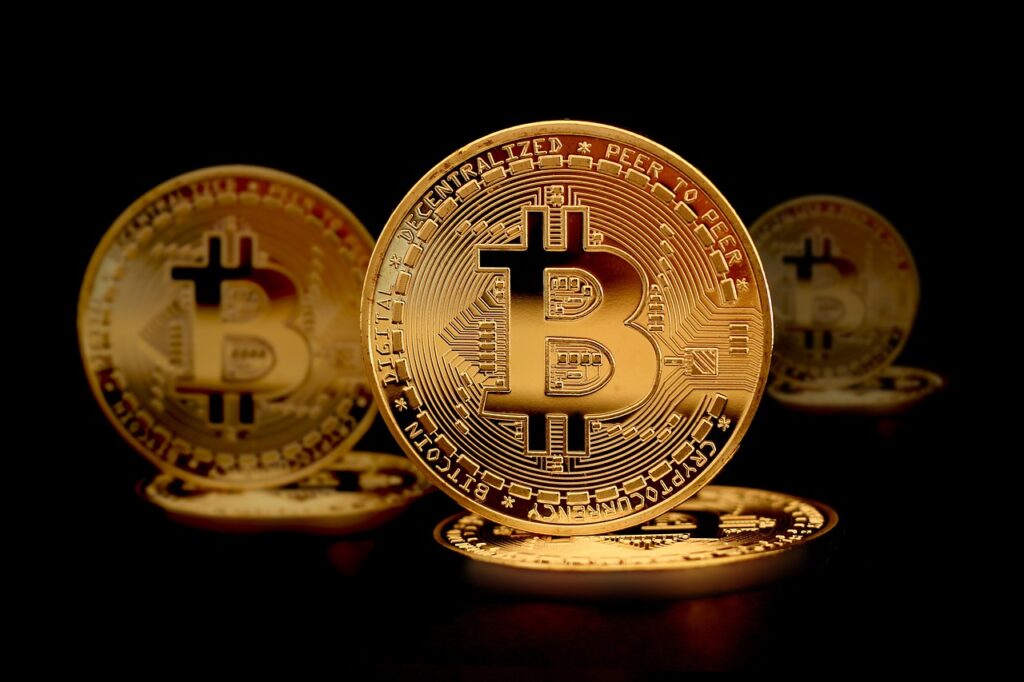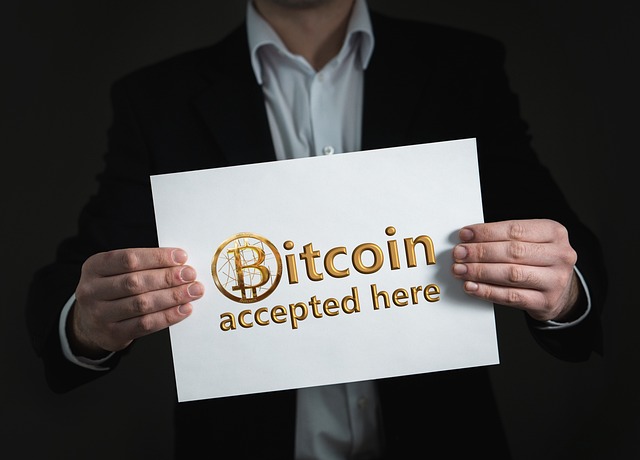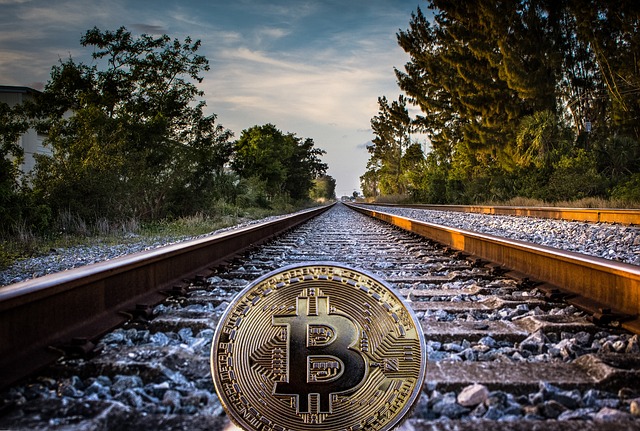Decentralized Finance System Demystified: A Comprehensive Overview
Decentralized Finance System Demystified: A Comprehensive Overview

What is Decentralized Finance (DeFi)?
Decentralized Finance (DeFi) refers to a financial system that operates on blockchain technology and aims to eliminate the need for intermediaries like banks and traditional financial institutions. It allows users to access a wide range of financial services and products, including lending, borrowing, trading, and investing, directly through decentralized applications (dApps). Unlike traditional finance, which relies on centralized entities to enforce rules and facilitate transactions, DeFi leverages the transparency, security, and efficiency of blockchain to provide a more inclusive and accessible financial ecosystem.
One of the main features of DeFi is its permissionless nature, which means anyone with an internet connection can participate in the system. This opens up opportunities for individuals who may not have had access to traditional financial services due to geographic restrictions, lack of identification, or other barriers. Additionally, DeFi applications often allow users to maintain control over their assets, reducing the risk of funds being frozen or seized. Overall, DeFi aims to democratize finance by empowering individuals to have greater control over their financial activities and options, while reducing the need for trust in centralized entities.
Key Features of DeFi
Decentralized Finance (DeFi) has gained significant traction in recent years due to its unique set of features. One of the key features of DeFi is its open and permissionless nature. Unlike traditional financial systems where access is limited by intermediaries, DeFi enables anyone with an internet connection to participate. This inclusiveness not only promotes financial empowerment but also fosters innovation as it opens doors for individuals and businesses to access a wide range of financial services without any restrictions.
Another important feature of DeFi is its peer-to-peer (P2P) nature. In traditional financial systems, transactions are usually mediated by intermediaries such as banks or credit card companies. DeFi, on the other hand, allows direct interactions between participants, eliminating the need for middlemen. This direct interaction not only reduces costs but also enhances overall efficiency. Moreover, P2P transactions enable faster settlement times and increased transparency, as all transactions are recorded on a public blockchain, accessible to anyone. This trustless environment ensures that transactions are executed autonomously without the need for an intermediary to facilitate or verify them.
Advantages of a Decentralized Finance System
A decentralized finance (DeFi) system offers several advantages that set it apart from traditional financial systems. Firstly, one of the key benefits of DeFi is its accessibility. Unlike traditional financial services that often require complex paperwork and high entry barriers, DeFi allows anyone with a smartphone and an internet connection to participate. This inclusivity opens up opportunities for individuals who may not have access to traditional banking services, particularly in underserved regions or developing economies.
Another advantage of DeFi is its potential for transparency and improved security. Traditional financial systems often operate behind closed doors, making it difficult for individuals to fully understand the inner workings and decisions made by centralized institutions. In contrast, DeFi is built on blockchain technology, which enables transparent and verifiable transactions. The use of smart contracts further enhances security by automating processes and removing the need for intermediaries. With these features, DeFi aims to foster a greater level of trust and eliminate potential fraudulent activities that can be associated with centralized systems.
The Role of Blockchain Technology in DeFi
Blockchain technology plays a crucial role in the realm of decentralized finance (DeFi). It serves as the underlying infrastructure that powers the entire system, ensuring transparency, security, and trust among participants. By leveraging blockchain’s decentralized nature, DeFi eliminates the need for intermediaries traditionally found in centralized financial systems, such as banks or other financial institutions. This decentralized approach enables anyone with an internet connection to participate in financial activities, regardless of their location or background, fostering financial inclusion on a global scale.
One of the key benefits of blockchain technology in DeFi is its immutability. Once a transaction is recorded on the blockchain, it cannot be tampered with or altered, enhancing the security and reliability of the financial system.


In summary, blockchain technology forms the foundation of decentralized finance, providing the necessary infrastructure for the creation of a transparent, secure, and accessible financial system. By harnessing the power of blockchain, DeFi has the potential to revolutionize traditional financial systems, democratize access to financial services, and empower individuals to have greater control over their finances.
Exploring Smart Contracts in DeFi
Smart contracts play a crucial role in the world of decentralized finance (DeFi). These self-executing agreements are coded onto a blockchain, enabling them to automatically execute when predetermined conditions are met. With smart contracts, the need for intermediaries or trusted third parties is eliminated, as the contracts are executed based on the rules and logic embedded within them.
In DeFi, smart contracts are used to facilitate a wide range of financial activities, including lending, borrowing, trading, and more.

• Smart contracts are self-executing agreements coded onto a blockchain.
• They automatically execute when predetermined conditions are met.
• Smart contracts eliminate the need for intermediaries or trusted third parties.
• The contracts are executed based on embedded rules and logic within them.
• In DeFi, smart contracts facilitate lending, borrowing, trading, and more.
• For example, a lending smart contract can disburse funds to a borrower based on predefined conditions like collateral or creditworthiness.
• A trading smart contract enables peer-to-peer exchanges of cryptocurrencies with predetermined conditions like agreed price.
• Smart contracts automate transactions and ensure trust and transparency in decentralized finance.
Understanding Decentralized Exchanges (DEX)
Decentralized exchanges (DEX) have emerged as a popular alternative to traditional centralized exchanges within the realm of decentralized finance (DeFi). Unlike centralized exchanges that require users to trust a central authority to hold their assets and facilitate trades, DEX operate on blockchain technology and smart contracts to enable peer-to-peer trading directly between users. This decentralized nature of DEX brings several advantages, such as increased privacy, reduced reliance on intermediaries, and enhanced security.
One key feature of DEX is the absence of a single point of failure. Since trades occur directly between users’ wallets, there is no need to deposit funds into an exchange’s custody. This eliminates the risk of hacks or insider fraud that can be associated with centralized exchanges. Additionally, DEX provide users with greater control over their funds, allowing them to retain ownership and custody throughout the trading process. This decentralized approach aligns with the fundamental principles of blockchain technology, ensuring transparency, immutability, and censorship resistance. As a result, DEX have gained traction and hold immense potential for shaping the future of decentralized finance.
The Importance of Decentralized Lending and Borrowing
Decentralized lending and borrowing plays a crucial role in the world of decentralized finance (DeFi). It offers individuals the opportunity to access loans and earn interest without needing to rely on traditional financial intermediaries such as banks. By utilizing blockchain technology and smart contracts, decentralized lending and borrowing platforms enable a peer-to-peer lending system where borrowers can secure loans directly from lenders. This eliminates the need for lengthy approval processes, excessive paperwork, and high interest rates typically associated with traditional lending institutions. Additionally, decentralized lending and borrowing opens up financial opportunities to individuals who may not have access to traditional banking services, thereby promoting financial inclusion and empowerment.
One of the key advantages of decentralized lending and borrowing is its ability to provide individuals with greater financial freedom and control over their assets. Through the use of decentralized platforms, users can lend and borrow various cryptocurrencies securely and efficiently. They can leverage their existing cryptocurrency holdings to obtain loans or earn interest on their assets by becoming lenders. This enables individuals to unlock the value of their cryptocurrencies and put them to productive use, whether it be for personal expenses, investment opportunities, or simply to earn passive income. Furthermore, decentralized lending and borrowing platforms offer users the flexibility to choose their own loan terms, interest rates, and collateral requirements, providing them with a more personalized and transparent borrowing experience. In summary, decentralized lending and borrowing is revolutionizing the financial landscape by empowering individuals with greater access to capital and control over their finances.
The Rise of Stablecoins in DeFi
One of the key developments in the world of decentralized finance (DeFi) is the rise of stablecoins. These are digital currencies designed to maintain a stable value, typically by pegging them to a fiat currency such as the US dollar. Stablecoins provide a much-needed stability in the volatile and unpredictable crypto market, making them an integral part of DeFi infrastructure.
Stablecoins offer several advantages in the DeFi ecosystem. Firstly, they provide a reliable and secure medium of exchange within decentralized applications (dApps), enabling users to transact with confidence and without the fear of value fluctuations. Additionally, stablecoins help in mitigating the risks associated with the price volatility prevalent in cryptocurrencies. This stability allows individuals and businesses to make informed financial decisions and use DeFi platforms for various transactions, ranging from lending and borrowing to trading and investing. The rise of stablecoins has played a significant role in driving the adoption and growth of DeFi, making it more accessible to a wider audience.
Challenges and Risks in the DeFi Ecosystem
DeFi, like any other financial system, is not without its challenges and risks. One of the main challenges in the DeFi ecosystem is scalability. As the popularity of DeFi applications continues to grow, the underlying blockchain networks face the problem of handling an increasing number of transactions. This can lead to slower transaction times and higher fees, making it less user-friendly and potentially hindering the widespread adoption of DeFi.
Another significant risk in the DeFi ecosystem is the presence of smart contract vulnerabilities. Smart contracts are the backbone of DeFi platforms, as they automate the execution of transactions and enable the various financial services offered. However, smart contracts can be subject to coding errors or malicious exploits, leading to potential security breaches and financial losses. These risks underscore the importance of thorough auditing and security measures to ensure the robustness and integrity of smart contracts in the DeFi ecosystem.
Future Trends in Decentralized Finance
One of the future trends in decentralized finance (DeFi) is the expansion of cross-chain interoperability. Currently, most DeFi protocols operate within a single blockchain ecosystem, limiting their compatibility with other platforms. However, there is a growing need for protocols to interact seamlessly across different blockchains. This would enable DeFi users to access a wider range of financial services and assets, regardless of the blockchain they are using. The development of technologies such as cross-chain bridges and interoperability protocols is expected to pave the way for this trend, creating a more interconnected and inclusive DeFi ecosystem.
Another future trend in DeFi is the integration of decentralized identity (DID) solutions. Traditional financial systems often require extensive and time-consuming identity verification processes, which can be burdensome and exclude individuals who lack certain documents or credentials. Decentralized identity solutions aim to address this issue by allowing individuals to maintain control over their own identity data while still proving their identity to financial service providers. By leveraging blockchain technology, DeFi protocols can potentially enable users to access financial services securely and seamlessly, regardless of their geographical location or background. This trend holds the promise of making finance more inclusive and accessible to a broader range of individuals and communities worldwide.
What is Decentralized Finance (DeFi)?
Decentralized Finance, or DeFi, refers to a system where financial transactions and services are conducted on a decentralized network, typically using blockchain technology.
What are the key features of DeFi?
Some key features of DeFi include the elimination of intermediaries, open access to financial services, transparency, and the use of smart contracts to automate transactions and ensure trust.
What are the advantages of a decentralized finance system?
A decentralized finance system offers advantages such as increased financial inclusivity, reduced costs, improved security, and the ability to earn passive income through various DeFi protocols.
How does blockchain technology play a role in DeFi?
Blockchain technology forms the backbone of DeFi as it provides a secure and transparent ledger for all transactions. It enables the creation of smart contracts and ensures trust and immutability in the decentralized finance ecosystem.
Can you explain smart contracts in DeFi?
Smart contracts are self-executing contracts with predefined rules that are written on a blockchain. In DeFi, smart contracts automate transactions and enforce agreements between parties without the need for intermediaries, increasing efficiency and reducing costs.
What are decentralized exchanges (DEX)?
Decentralized exchanges, or DEXs, are platforms that allow users to trade cryptocurrencies directly with one another without the need for intermediaries. They provide increased privacy, control, and security compared to centralized exchanges.
Why is decentralized lending and borrowing important in DeFi?
Decentralized lending and borrowing platforms in DeFi allow individuals to borrow or lend cryptocurrencies without relying on traditional banks or financial institutions. It enables greater financial inclusion and provides opportunities for individuals to earn interest on their assets.
What is the significance of stablecoins in DeFi?
Stablecoins are cryptocurrencies that are designed to maintain a stable value by being pegged to a fiat currency or a basket of assets. They play a crucial role in DeFi by providing a stable medium of exchange and reducing the volatility often associated with cryptocurrencies.
What are the challenges and risks in the DeFi ecosystem?
Some challenges and risks in the DeFi ecosystem include smart contract vulnerabilities, regulatory uncertainty, scalability issues, and the potential for hacking or fraudulent activities. It is important for users to exercise caution and perform thorough due diligence before participating in DeFi protocols.
What are the future trends in decentralized finance?
The future of decentralized finance is expected to witness advancements in scalability solutions, interoperability between different DeFi protocols, the integration of decentralized identities, and the development of innovative financial products and services that cater to a wider range of users.
Todays Featured Product:
Buy, exchange and grow your crypto securely with a Ledger hardware wallet, combined with the Ledger Live app. It’s never been easier to keep your crypto safe and accessible. Buy direct from Ledger.com and get todays Special Offers Here.




